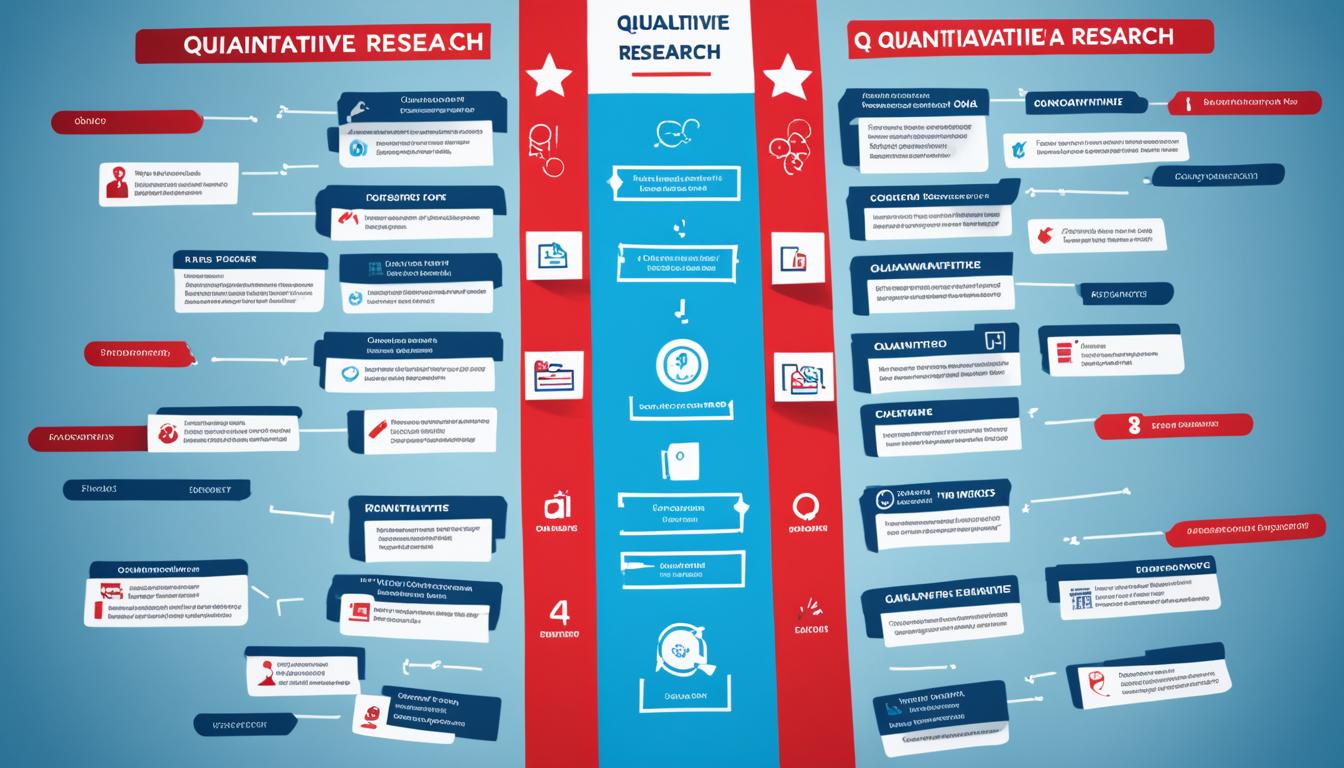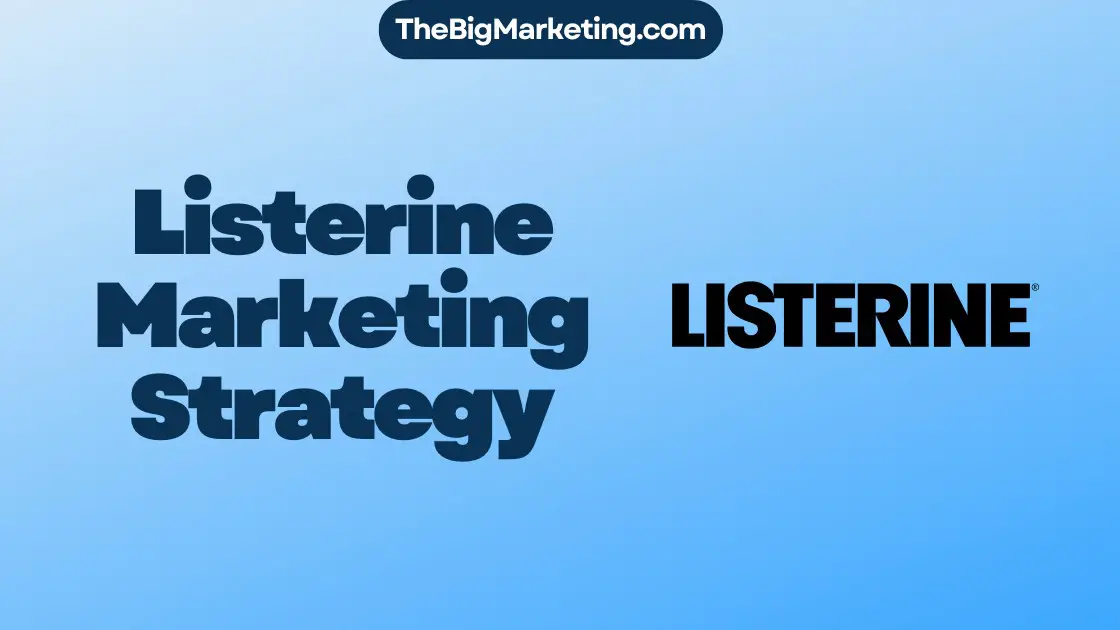Solar marketing has become an integral part of promoting renewable energy solutions like solar panels. With the increasing demand for sustainable living and the benefits of solar energy, an effective solar marketing strategy is essential for businesses in the industry.
The goal of solar marketing is to boost brand visibility, foster customer loyalty, and educate consumers about the advantages of going green. By implementing various marketing techniques, businesses can reach a wider audience, including homeowners, businesses, and even governments.
Some common types of solar marketing include email campaigns, social media marketing, and hosting webinars. These strategies allow businesses to engage with customers, provide valuable information, and highlight the benefits of solar solutions.
Building trust and credibility online is crucial in solar marketing. This can be achieved through authentic website design that showcases certifications and awards, gathering positive reviews from satisfied customers, and actively engaging with the audience on social media.
Understanding the different types of solar panels and their benefits is also essential for effective solar marketing. Monocrystalline, polycrystalline, and thin-film panels each have their own advantages, and businesses need to educate consumers about these options.
The cost of solar panels can vary depending on factors such as the type of panel, installation size, and location. To make solar solutions more accessible, financing options are available to help customers embrace renewable energy.
Key Takeaways:
- Solar marketing is crucial in expanding the reach of renewable energy solutions.
- Email campaigns, social media marketing, and webinars are effective solar marketing strategies.
- Building trust and credibility online is important in solar marketing.
- Understanding the different types of solar panels and their benefits is essential.
- Financing options make solar solutions more accessible.
Importance of Solar Marketing
Solar marketing plays a pivotal role in promoting renewable energy solutions and advocating for green living. As the demand for sustainable alternatives continues to grow, solar marketing becomes increasingly significant in driving awareness and encouraging adoption. By reaching out to customers and educating them about affordable and efficient solar solutions, solar marketing serves as a catalyst for transforming the energy landscape.
One of the key advantages of solar marketing is the boost it provides to brand visibility. In a saturated market, effective marketing strategies differentiate businesses and ensure their message reaches the target audience. By leveraging solar marketing techniques, organizations can enhance their reputation, establish credibility, and stand out from competitors.
Solar marketing also plays a crucial role as an educational tool, breaking down technical jargon and highlighting the ease of transitioning to green living. It helps bridge the gap between consumers’ concerns and the practicality of using renewable energy sources. By providing clear information about the benefits of solar solutions, such as cost savings, reduced carbon footprint, and energy independence, solar marketing empowers individuals and communities to embrace a sustainable lifestyle.
Furthermore, solar marketing fosters customer loyalty by establishing an emotional connection between the brand and its customers. By positioning themselves as leaders in the renewable energy sector, businesses can cultivate customer loyalty and trust. Customers appreciate the commitment to sustainable practices and are more likely to remain loyal to brands that align with their values.
Different Types of Solar Marketing
Solar marketing utilizes a range of tactics to effectively promote solar energy products and services. By employing different strategies, solar companies can reach a wider audience and create a strong brand presence in the market.
Email Marketing
One of the most effective tactics in solar marketing is email marketing campaigns. By leveraging email lists, businesses can engage with potential customers through personalized communication. This approach allows companies to showcase their solar solutions and highlight how they can meet the customer’s energy needs. Email marketing also enables businesses to nurture leads and build long-term relationships with their audience.
Social Media Marketing
In today’s digital age, social media marketing has become an indispensable tool for businesses across industries, including solar marketing. By leveraging popular social media platforms like Facebook, Twitter, and Instagram, solar companies can engage with customers, share useful content, and create visual impact with images and videos. Through social media marketing, companies can effectively communicate their brand values and engage with potential customers on a more personal level.
Webinars
Webinars are another effective tactic in solar marketing. These online seminars provide an opportunity for solar companies to educate consumers about the benefits of solar energy and showcase their expertise in the field. Webinars allow businesses to address common questions and concerns, provide valuable insights, and interact with potential customers in real-time. By hosting webinars, solar companies can position themselves as credible sources of information and build trust with their audience.
Incorporating a mix of email marketing, social media marketing, and webinars can help solar companies effectively promote their products and services. These strategies allow for personalized communication, engagement with customers on popular platforms, and education to potential buyers.
Target Audience for Solar Marketing
When developing a solar marketing strategy, it is crucial to identify and understand your target audience. While homeowners looking to reduce their electricity bills are a significant part of the market, the potential reach extends far beyond just residential customers. Businesses and governments also form a crucial segment of the target audience for solar marketing.
Homeowners: Homeowners are seeking ways to lower their energy costs, protect the environment, and embrace sustainable living. They are motivated by the desire to reduce their carbon footprint and take advantage of incentives and rebates offered by utility companies and governments. Solar marketing can effectively reach homeowners through targeted online ads, educational content, and personalized communication.
Businesses: Many businesses today are adopting sustainability goals and actively seeking ways to reduce their environmental impact. Incorporating solar energy solutions aligns with their objectives and helps them achieve sustainability targets. Solar marketing for businesses can focus on cost savings, corporate social responsibility, and the enhanced brand image that comes with embracing green initiatives.
Governments: Governments at all levels play a vital role in promoting solar energy adoption. They have sustainability goals and initiatives aimed at reducing greenhouse gas emissions and promoting cleaner cities. Solar marketing strategies targeting governments should emphasize the environmental benefits, potential cost savings, and incentives available for transitioning to renewable energy.
Understanding the unique motivations and needs of each segment is critical when developing solar marketing campaigns. Tailoring messaging and communication to address their specific pain points and goals will increase the effectiveness and impact of your solar marketing efforts.
Building Trust and Credibility Online
In the world of solar marketing, building trust and credibility online is paramount. Establishing a strong online presence helps instill confidence in potential customers and position your brand as a reliable industry leader. There are several key strategies for building trust and credibility in solar marketing:
1. Authentic Website Design
An authentic website design plays a crucial role in building trust with your target audience. Your website should be visually appealing, easy to navigate, and reflect your brand’s values and professionalism. By employing an intuitive user interface, showcasing certifications and awards, and providing comprehensive information about your solar products and services, you can establish credibility and confidence in your brand.
2. Positive Reviews
Positive reviews and testimonials from satisfied customers serve as powerful tools for building trust and credibility. Encourage your customers to leave reviews and showcase them prominently on your website. You can also leverage review platforms and social media channels to gather and display authentic feedback. Honest and positive reviews provide social proof, demonstrating the value and efficacy of your solar solutions to potential customers.
3. Social Media Engagement
Social media engagement is an effective way to build trust and credibility with your audience. By maintaining an active presence on platforms such as Facebook, Instagram, and LinkedIn, you can showcase your expertise, share valuable content, and interact with your followers. Promptly responding to inquiries and comments demonstrates your commitment to customer satisfaction and establishes your brand as trustworthy and reliable.
| Benefits of Building Trust and Credibility Online | Strategies for Building Trust and Credibility Online |
|---|---|
|
|
By employing these strategies, you can cultivate trust and credibility in the competitive solar marketing landscape. Building an authentic online presence, leveraging positive customer feedback, and engaging with your audience on social media will help establish your brand as a reliable and reputable provider of solar solutions.
Understanding Your Product
In order to effectively market solar energy solutions, it is crucial to have a thorough understanding of the different types of solar panels, their advantages, the photovoltaic effect, the cost, and the financing options available. By familiarizing yourself with these key aspects, you can better educate consumers and promote the benefits of solar energy.
Types of Solar Panels
There are three main types of solar panels: monocrystalline, polycrystalline, and thin-film panels. Each type has its own set of advantages and considerations to take into account.
- Monocrystalline panels are made from a single crystal structure, resulting in higher efficiency and sleek aesthetics. They work best in areas with limited roof space.
- Polycrystalline panels are made from multiple crystal structures and offer a more affordable option without compromising performance. They are ideal for larger installations and areas with ample sunlight.
- Thin-film panels are flexible and lightweight, making them suitable for unconventional installations and curved surfaces. However, their lower efficiency may require larger surface areas.
By understanding the differences and advantages of each type, you can guide consumers towards the most suitable solar panel solution for their specific needs.
Photovoltaic Effect
The photovoltaic effect is the process by which solar panels convert sunlight into electricity. Photons from the sun’s rays knock electrons loose from atoms in the solar panel’s semiconductor material, generating a flow of electricity. This clean and renewable energy source allows for the reduction of reliance on fossil fuels, resulting in a more sustainable future.
Cost and Financing Options
The cost of solar panels can vary depending on factors such as the type of panel, the size of the installation, and the location. While the initial investment may seem substantial, it is essential to consider the long-term savings on electricity bills and the positive impact on the environment.
Fortunately, there are various financing options available to make solar solutions more accessible. Leases and loans are common options that allow homeowners and businesses to install solar panels with little to no upfront costs. These financing options enable consumers to reap the benefits of solar energy while spreading the investment over a manageable timeframe.
By understanding the different types of solar panels, the advantages they offer, the photovoltaic effect, the cost implications, and the available financing options, you can confidently promote solar energy solutions to consumers. Equipped with this knowledge, you can effectively showcase the benefits of solar panels and help customers make informed decisions.
Market Research in Solar Marketing
Market research plays a crucial role in devising effective solar marketing strategies. It offers valuable insights into the target market, helps analyze the competition, and enables businesses to adapt to the latest solar industry trends.
Gaining Insights into the Target Market
To successfully market solar energy products and services, understanding the target market is essential. This involves gaining deep insights into their needs, preferences, and level of environmental consciousness. By identifying what motivates potential customers to adopt solar energy, businesses can tailor their marketing messages and offerings more effectively.
Analyzing the Competition
Conducting a comprehensive competition analysis allows businesses to differentiate themselves from their rivals. By studying their competitors’ marketing strategies, strengths, and weaknesses, businesses can position themselves uniquely in the market. This analysis aids in identifying opportunities to improve upon existing solar marketing techniques and refine messaging to stand out from the competition.
Keeping Up with Solar Industry Trends
The solar industry is constantly evolving, with advancements in technology and regulatory changes shaping the market landscape. Staying updated with solar industry trends is vital for businesses to adapt their solar marketing efforts effectively. By embracing the latest innovations and understanding the impact of regulatory policies, businesses can align their marketing strategies with the evolving needs of the target market.
Market research provides key insights into the target market, competition, and industry trends, fueling the development of data-driven solar marketing strategies. By understanding customers’ needs, differentiating from competitors, and staying ahead of industry trends, businesses can maximize their marketing efforts and drive sustainable growth in the solar industry.
| Target Market Insights | Competition Analysis | Solar Industry Trends |
|---|---|---|
| – Customer needs and preferences | – Analysis of competitors’ strategies | – Advancements in solar technology |
| – Environmental consciousness levels | – Competitors’ strengths and weaknesses | – Regulatory changes and policies |
| – Motivations for adopting solar energy | – Differentiating from competitors | – Emerging market trends |
Identifying Your Unique Value Proposition
Your solar business needs to stand out from competitors in order to capture the attention of potential customers. Defining your unique value proposition is crucial in highlighting what sets your company apart and why customers should choose you over others. By combining product insights with customer insights, you can craft a clear and compelling unique value proposition.
Marrying Product and Customer Insights
Building a unique value proposition requires a deep understanding of both your product offerings and your target customers. Start by analyzing your solar products and identifying their distinctive features, benefits, and advantages. Consider factors such as energy efficiency, reliability, durability, and any other unique selling points that differentiate your solar panels or services from those of your competitors.
Once you have a clear understanding of your product, it’s essential to gather customer insights. Conduct market research to identify your target audience, their needs, pain points, and preferences. Understanding what motivates your customers, their values, and their aspirations will help you align your unique value proposition with their expectations and desires.
Highlighting Differentiation
With a solid understanding of your product and customer insights, you can now emphasize the aspects that differentiate your solar business from others in the market. Focus on key features, benefits, or values that resonate with your target audience and address their specific pain points or desires.
Highlight the unique advantages your solar company offers, such as cutting-edge technology, superior quality, exceptional customer service, or environmentally sustainable practices. Emphasize how your offerings provide greater value or a better solution compared to what is currently available in the market.
Crafting Your Unique Value Proposition
Now that you have identified your unique value proposition, it’s time to craft a concise and compelling statement that effectively communicates your differentiation to potential customers. Keep it clear, concise, and customer-centric.
Your unique value proposition should answer the following questions:
- What specific benefits or advantages do you offer to customers?
- How do these benefits or advantages differentiate you from your competitors?
- Why should customers choose your solar business over others?
Use customer-oriented language and focus on how your unique value proposition addresses their needs, solves their problems, or fulfills their desires. Ensure that your value proposition resonates with your target audience and effectively communicates the value you bring to their lives.
Example Unique Value Proposition
Here’s an example of a unique value proposition for a solar business that differentiates itself by offering highly efficient and customizable solar solutions:
“At SolarTech Solutions, we provide cutting-edge solar panels tailored to meet your unique energy needs. Our state-of-the-art technology delivers industry-leading efficiency, allowing you to maximize your energy savings and reduce your carbon footprint. With our customizable solar solutions and personalized service, we empower you to take control of your energy future while making a positive impact on the environment.”
Solving Customer Problems in Solar Marketing
In the world of solar marketing, it is crucial to focus on solving customer problems instead of solely selling products. By identifying and addressing the specific challenges that customers face, you can position your solar company as the ideal solution. Conducting thorough market research allows you to gain valuable insights into customer pain points and tailor your offerings accordingly.
One common customer problem that solar marketing aims to address is high electricity bills. Many homeowners and businesses are seeking ways to reduce their energy costs, and solar power offers an affordable and sustainable solution. By emphasizing the financial benefits of solar panels, such as long-term savings on electricity bills, you can clearly communicate the value proposition to potential customers.
Another customer problem that solar marketing addresses is environmental concerns. As more individuals and organizations prioritize sustainability, positioning solar energy as a green and clean alternative can be highly effective. By highlighting the positive environmental impact of solar panels, such as reducing carbon emissions and dependence on fossil fuels, you can appeal to the growing number of environmentally conscious customers.
Market research plays a crucial role in solar marketing by helping you understand the specific customer problems you need to address. By conducting surveys, analyzing data, and studying industry trends, you can gain valuable insights into customer pain points. This research allows you to customize your marketing strategies and offerings to meet the specific needs and desires of your target audience.
Understanding Customer Pain Points through Market Research
To effectively solve customer problems and meet their needs, thorough market research is essential. By conducting surveys and interviews, you can gather insights into what challenges your target audience faces in relation to solar energy. Understanding their pain points allows you to develop tailored solutions and effective marketing campaigns.
Market research also helps you stay informed about changing customer demands and preferences. By analyzing industry trends and competitor strategies, you can identify gaps in the market and position your solar company as the ideal solution. This information empowers you to craft unique value propositions and differentiate yourself from competitors.
Overall, by focusing on addressing customer problems, backed by solid market research, you can create compelling solar marketing campaigns that resonate with your target audience. By positioning your solar company as the solution to their problems, you can build trust, credibility, and customer satisfaction, ultimately driving business growth and contributing to the wider adoption of solar energy solutions.
Conclusion
Solar marketing strategies continue to evolve in response to technological advancements and shifts in consumer behavior. To stay ahead in the industry, it is crucial for solar businesses to incorporate digital marketing trends and employ effective strategies. One such trend is the use of educational content to engage and educate customers about the benefits of solar energy.
Another effective strategy is influencer engagement, where reputable individuals promote solar products and services to their followers, enhancing brand visibility. Paid advertising can also play a significant role in reaching a wider audience and driving solar business growth.
Managing the online reputation of solar companies is vital in building trust and credibility. A positive online presence, including positive reviews and active social media engagement, can influence the decision-making process of potential customers.
Furthermore, lead generation strategies such as hosting webinars, conducting workshops, and offering free consultations can help connect with new customers and expand the client base. By staying updated with industry trends and maintaining effective marketing materials, solar businesses can maximize their success in the market.




